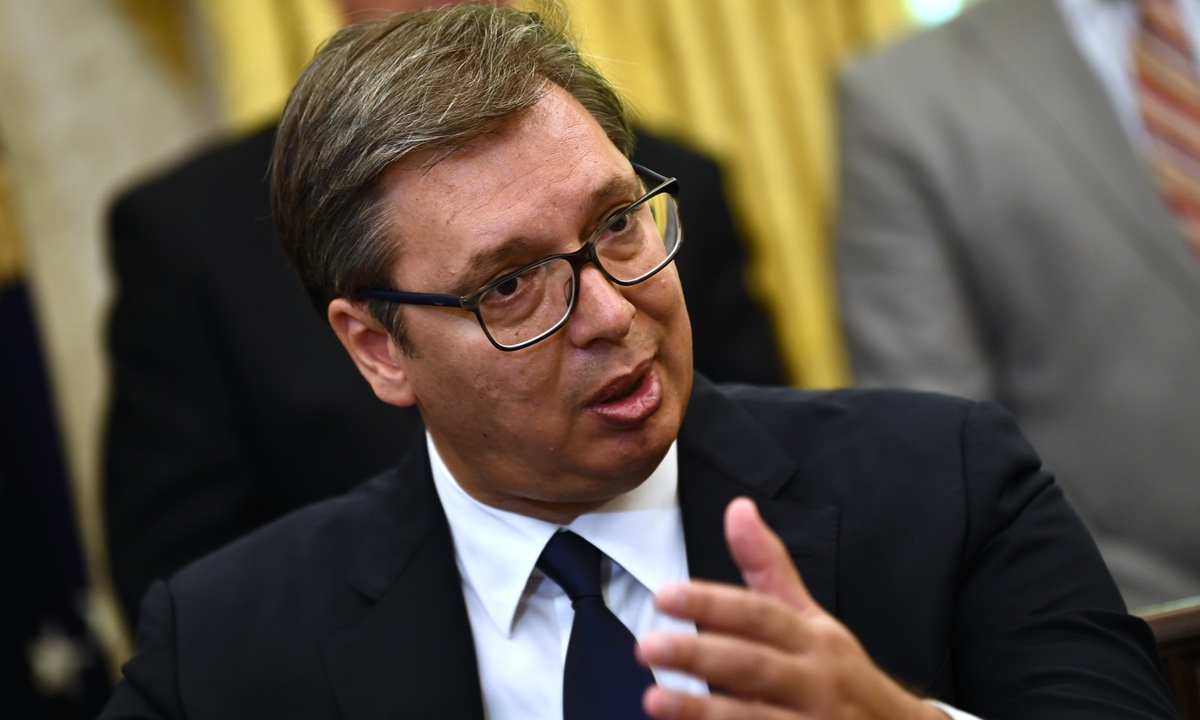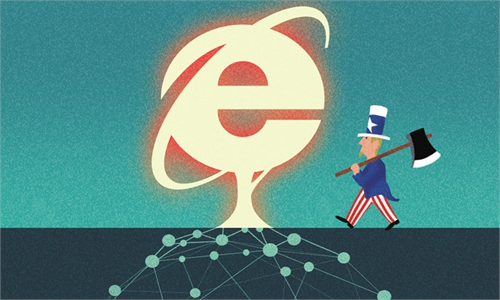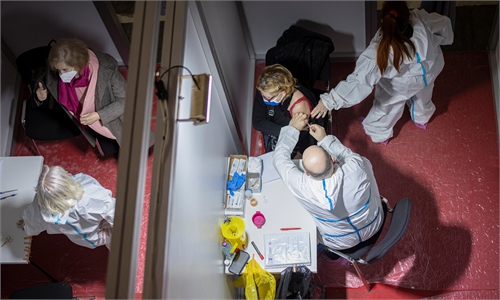
Serbian President Aleksandar Vucic Photo: AFP
When the US, the UK and the EU have started vaccine rollouts, millions of people living in the Balkans were expecting to receive a vaccine soon.According to a report by the Financial Times on Tuesday, Albania, which joined NATO in 2009 and became a candidate for EU membership in 2014, had not received even symbolic doses through EU mechanisms. Kosovo, Bosnia and Herzegovina, North Macedonia and Montenegro share a similar fate. In terms of vaccine distribution, these Balkan countries and regions seemingly have become forgotten corners.
Now, vaccines are the core and key elements for the world to overcome the COVID-19 pandemic. But a situation that worries the World Health Organization is that there are widespread inequalities and injustices with vaccine distribution. A large number of doses have mainly flowed into developed countries, particularly the US and the UK. But in some countries and regions, even fewer than 1,000 people have been vaccinated.
As for Europe, vaccines are still a scarce product in general. At present, major EU countries, such as Germany and France, have to give priority to their own needs. The EU is a united trade and monetary body. But now some EU members have scrambled to secure separate vaccine contracts for their own populations as the bloc faces a vaccine shortage problem. The EU is unable to guarantee vaccine supplies and offer assistance in terms of vaccine purchase to its members and countries in the Balkans and other regions that are desperate for them.
Although it did not receive the EU's help, Serbia has become a country leading European powers, such as France and Germany, in terms of per capital vaccination rates. Serbia is the first European country to use China's Sinopharm shots. China has also given humanitarian aid to the central Balkans state from the initial fight against the pandemic. Now more Balkan countries are set to follow Serbia's lead to turn to China and Russia for their jabs.
In an interview last week, Serbian President Aleksandar Vucic explained why he decided to purchase Chinese and Russian vaccines. "The world has hit an iceberg, like the Titanic, and the rich and the richest only save themselves and their loved ones. We're drowning together with the Titanic. It may not be their intention, but it is not particularly important to them," the president said.
If the EU cannot provide vaccine assistance to its members or other countries in the European continent who need it, those countries can develop cooperation with China. It's imperative to their survival. This is understandable and indisputable from humanitarian perspectives and the development of bilateral relations.
Regrettably, the deepening cooperation between China and Serbia in the pandemic fight has drawn criticism and vigilance from some Europeans. They have accused China of engaging in vaccine diplomacy to expand political influence in the Balkan region. It is reported that a group of 26 members of the EU parliament recently addressed the European Commissioner for Enlargement and Neighborhood Policy, expressing concern over the increased Chinese influence in Serbia.
Some Europeans are stuck in a Cold War mentality, perceiving any exchanges and cooperation between China and European countries from the perspective of geopolitical competition. They harbor inexplicable suspicion and hostility toward China. In addition to the vaccine issue, some Europeans, including those from think tanks and the EU parliament, have also misinterpreted the EU-China Comprehensive Agreement on Investment signed at the end of 2020.
When a country needs and seeks help in the fight against the pandemic, how can some people misinterpret the act of offering necessary assistance as an attempt to pursue political influence? The EU emphasizes and profoundly values the spirit of humanitarianism. How can some Europeans demand China to not extend a helping hand after seeing that some European countries are facing grave challenges of the pandemic?
Europe is highly vigilant about the influence of China and Russia in the Balkan region. But facing the pandemic, the Balkan countries have the right to turn to China and Russia for help. There is nothing reproachable in these humanitarian actions. If China and Russia have the capabilities and are also willing to help, this will solve Balkan countries' difficulties.
The author is secretary general of the Shanghai Academy of Global Governance and Area Studies at Shanghai International Studies University. opinion@globaltimes.com.cn



